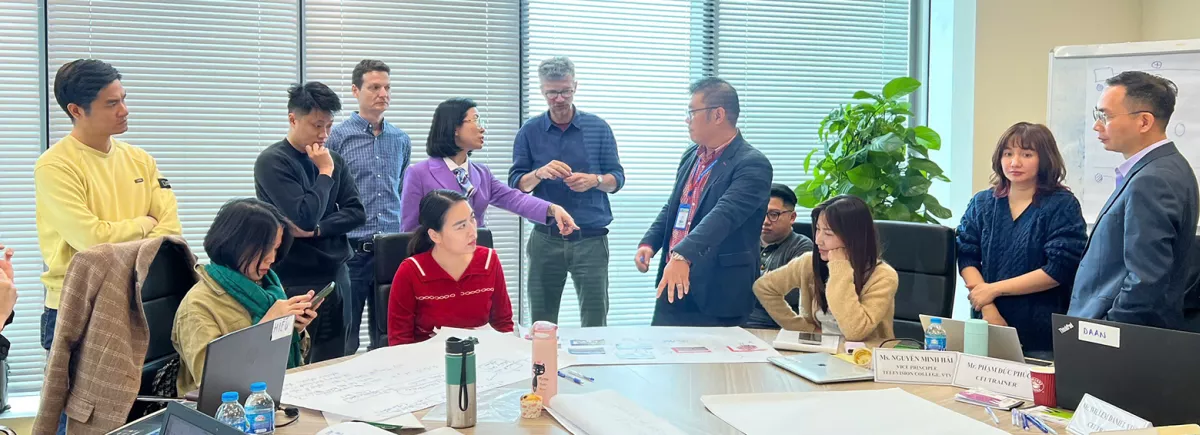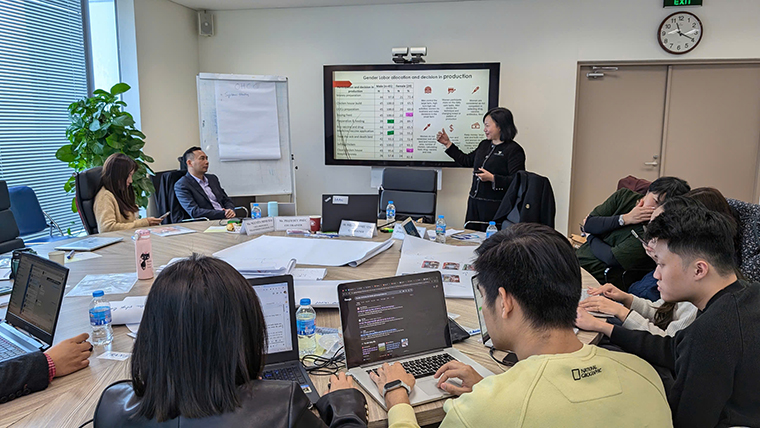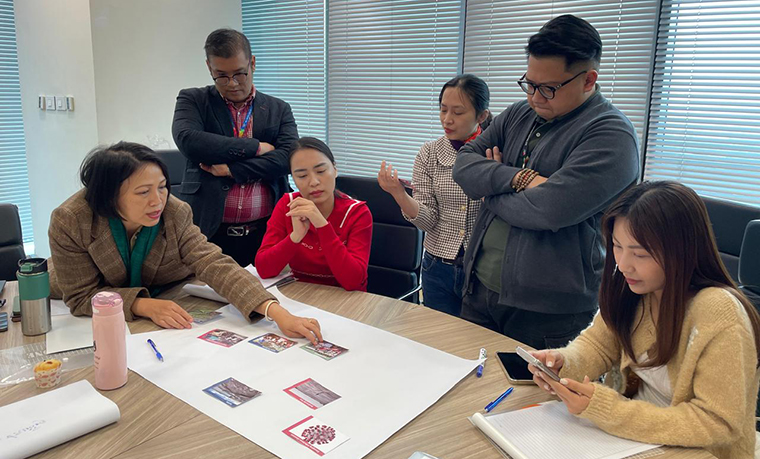
12 Vietnamese Journalists Trained in the “One Health” Approach
Related project
Media for One healthFrom March 31 to April 4, CFI trained 12 Vietnamese journalists from Vietnam Television (VTV) in this approach to improve their coverage of environmental and medical topics.
The current environmental and climate disruptions around the world call for breaking down silos in finding solutions. The “One Health” approach offers a global perspective on these issues. It highlights the interconnection between three essential elements: human health, animal health, and the environment, to address challenges such as emerging diseases, antibiotic resistance, the impact of pesticides, and the dangers of deforestation.
However, this approach remains relatively unknown among the public and media in Southeast Asia, particularly in Vietnam. In response to this issue, the Media for One Health project was launched in Vietnam in 2024, and CFI organized this new training session at the beginning of April.
Developed as part of a partnership with VTV, this training was conducted under the guidance of Prof. Daan Vink, a veterinarian and epidemiologist at the Centre de coopération internationale en recherche agronomique pour le développement (CIRAD), and Dr. Pham Duc Phuc, coordinator of the Vietnam One Health University Network (VOHUN) and director of the Institute of Environmental Health and Sustainable Development (IEHSD).
Over five days, they guided 12 VTV journalists through the origins, scientific principles, and institutional challenges of this approach. Together, they explored concrete examples of national-level implementation, used practical tools to identify relevant topics, refine their angles, and better target their audiences. Their journalistic skills were also strengthened, enabling them to make complex medical and environmental issues more understandable to the public.

By training these Vietnamese journalists to decipher these issues and their impacts, CFI continues its mission of supporting media as key players in development. For their part, VTV journalists are now better equipped to fulfill their mission of informing and preventing potential future crises.
But the journey doesn’t end there. While this training laid a solid foundation for sustainable learning by providing key skills ready to be put into practice, new training sessions have extended the momentum and supported the application of these skills in the field.
In May, the same journalists took part in a training session on the use of social media, aiming to leverage these platforms to better inform and raise awareness about medical and environmental issues. They will soon participate in training on artificial intelligence and data manipulation, to further refine their science communication work.



